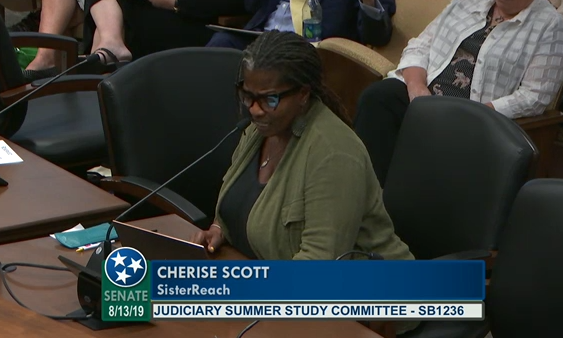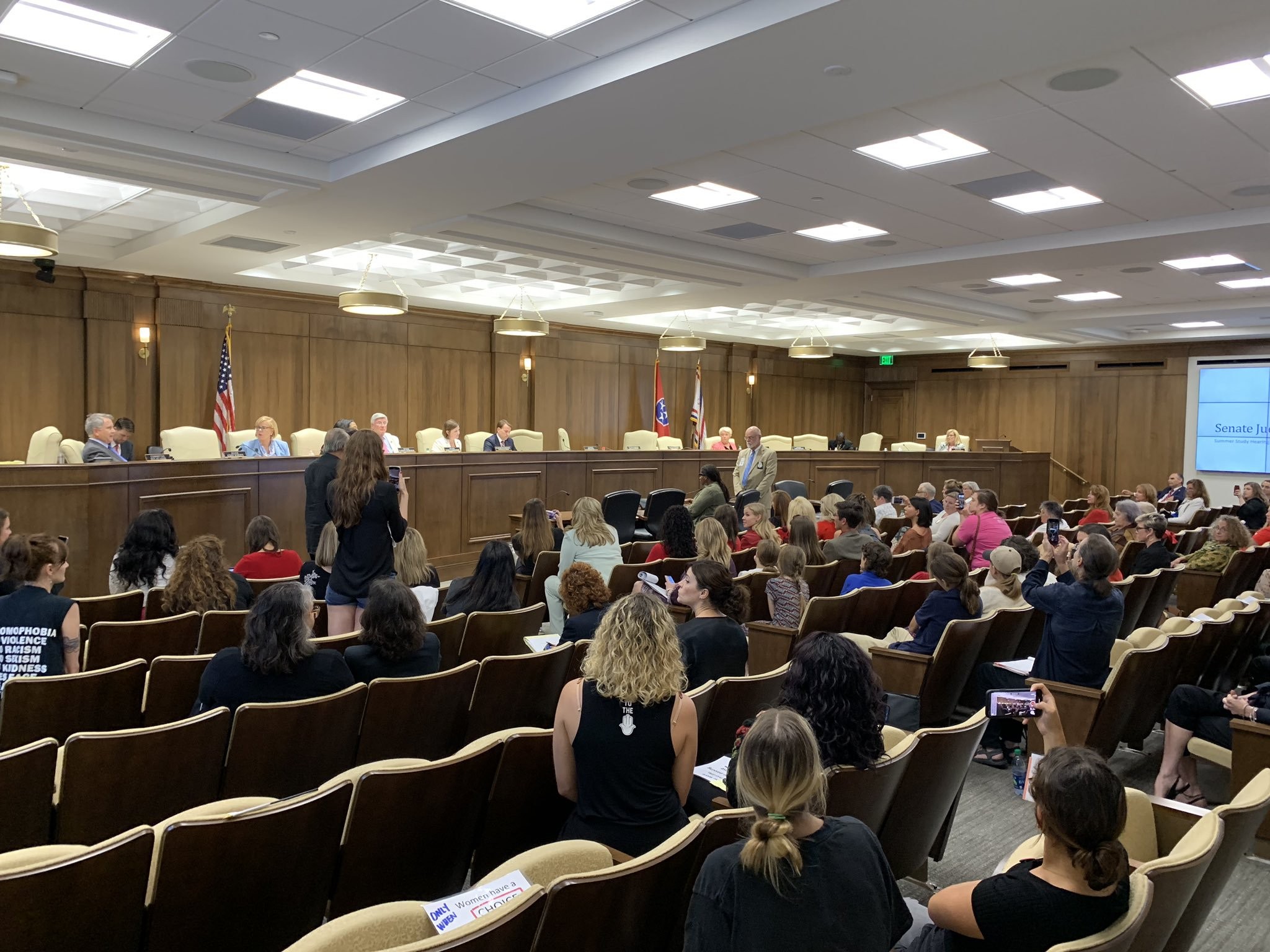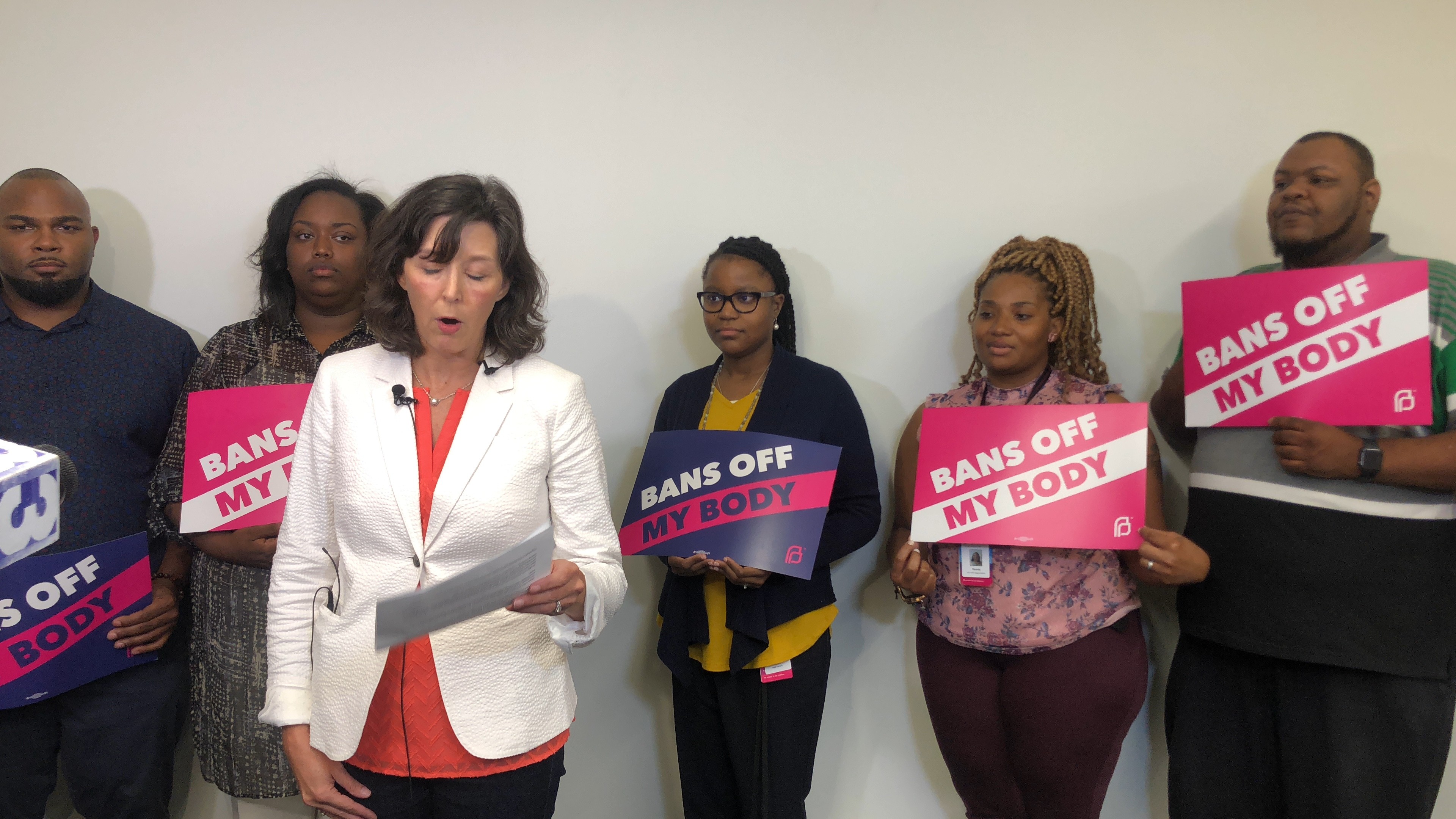With support from Metro Nashville’s mayor, two Republican lawmakers are sponsoring a measure designed to handcuff hate groups such as those that targeted a synagogue and marched in Nashville last year.
Notably, it prohibits the transport of people in box trucks, such as the rental vehicles used to carry neo-Nazi groups to Nashville locations, and gives police more latitude to charge people with violating the law.
But one First Amendment expert said the bill is on “constitutional thin ice” even though California adopted a similar law.
“It’s important to remember that hate speech is completely protected by the First Amendment to the U.S. Constitution. It’s not a close call. Hateful things are protected under the First Amendment no matter how ugly or disturbing or rude they happen to be,” said Ken Paulson, director of the Free Speech Center at MTSU in Murfreesboro.
Allowing government to define hate speech would be “extraordinarily dangerous,” Paulson added, because each administration could find different things to be hateful.

House Majority Leader William Lamberth (R-Portland) sponsored a resolution in 2024 condemning neo-Nazis that marched through downtown Nashville carrying swastika flags and wearing masks. With the 2025 legislative session approaching on Jan. 14, Lamberth and Sen. Mark Pody (R-Lebanon) are sponsoring House Bill 55, which revamps state laws dealing with littering and trespassing, police procedures and obstruction of justice, and road safety to tamp down hate speech and intimidation.
Groups handed out anti-Jewish literature to members of a Nashville synagogue and held signs at overpasses promoting hateful messages.
“These tactics are deliberate efforts to terrify people and create profound distress,” Lamberth said in a statement. He added that people who commit hate crimes, “often anonymously,” should be held accountable.
Pody, who represents part of Davidson County, said the bill represents the state’s “unwavering commitment” to protecting communities from antisemitism, intimidation and extremism.
Dubbed the Protecting Everyone Against Crime and Extremism Act (PEACE) Act, the bill sets up new limitations for littering and trespassing to keep hate groups from flooding neighborhoods and parking lots with fliers.
Lamberth said Monday the bill is “carefully crafted” to avoid problems with broad interpretation or the potential for police to crack down on rallies and protests that don’t involve hate speech.
The Metro Nashville Council passed an ordinance last year targeting hate groups after marches took place in Nashville, and Mayor Freddie O’Connell said in a statement he appreciates the effort to stop such intimidation and give law enforcement more tools to handle these situations.
“It sends the message that hateful acts will never be tolerated here,” O’Connell said.
The Tennessee Bureau of Investigation reported 122 incidents in 2023 motivated by bias involving race, religion, sexuality, and disability, down slightly from 129 in 2022 and 135 in 2021. Some 35 percent to 41 percent of those were anti-Black or African American, the report shows.
It’s not a close call. Hateful things are protected under the First Amendment no matter how ugly or disturbing or rude they happen to be.
– Ken Paulson, director, Free Speech Center at Middle Tennessee State University
State Rep. John Ray Clemmons (D-Nashville) said Monday he appreciates the spirit of the legislation because he feels too many people, including his family, have been victims of the type of hate speech the bill is trying to prevent. Clemmons, though, indicated the measure might need changes.
“I hope to work with the sponsors to ensure that the legislation, in its final form, is constitutionally sound and achieves its stated, intended purpose,” said Clemmons, chairman of the House Democratic Caucus.
The measure makes it a Class A misdemeanor to pass out literature considered a form of hate speech or intimidate someone to prevent them from exercising constitutional rights such as religious freedom or the ability to vote.
The bill also gives law enforcement officers more leeway for enforcement.
For the second week in a row, neo-Nazis take to Nashville streets
It creates a buffer zone of 25 feet between officers and people who are ordered to stop and makes it a Class B misdemeanor to violate that space.
The bill also requires a person to give their name to an officer who asks them to identify themselves and makes it a Class C misdemeanor to refuse or to give a fake name.
Using a box truck to transport people would be made a Class B misdemeanor under the bill. At least one group used a rental truck to bring its members into town to rally.
Likewise, the bill would make it illegal to put a sign, signal or marking on a bridge, overpass or tunnel.
In addition, police could use “probable cause” to charge someone with violating the law regardless of whether they saw the person commit the act.
Paulson said most controversies have two points of view, and each side believes the other is hateful.
Governments can ban all littering and banners hanging from overpasses, but they can’t prohibit only those pieces of literature and banners they regard as hateful, Paulson said.
“If you ban Nazi pamphlets, you also have to ban pizza joints passing out coupons in public. You cannot discriminate on the basis of ideas,” he said.
Tennessee Lookout is part of States Newsroom, a nonprofit news network supported by grants and a coalition of donors as a 501c(3) public charity. Tennessee Lookout maintains editorial independence. Contact Editor Holly McCall for questions: info@tennesseelookout.com.


 Matt Anderson
Matt Anderson  Maya Smith
Maya Smith  Facebook/Mark Pody
Facebook/Mark Pody